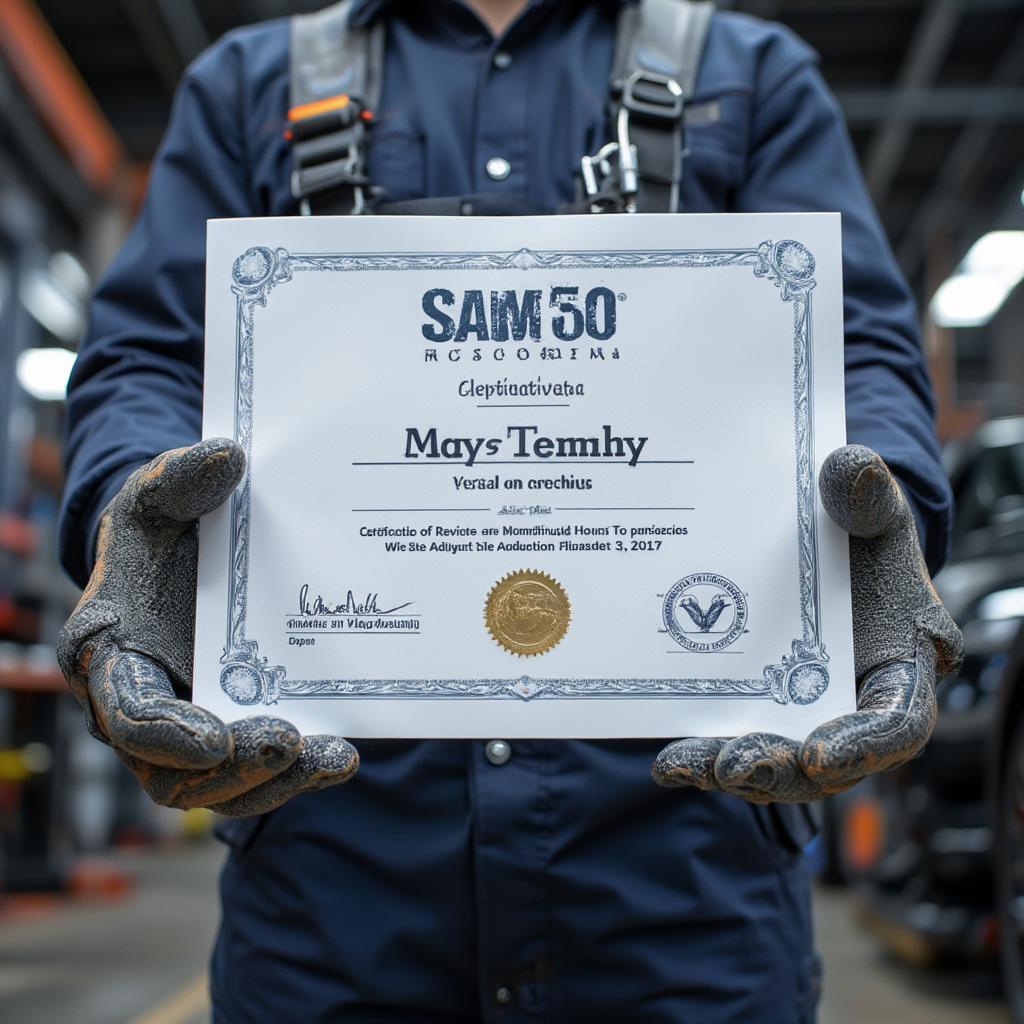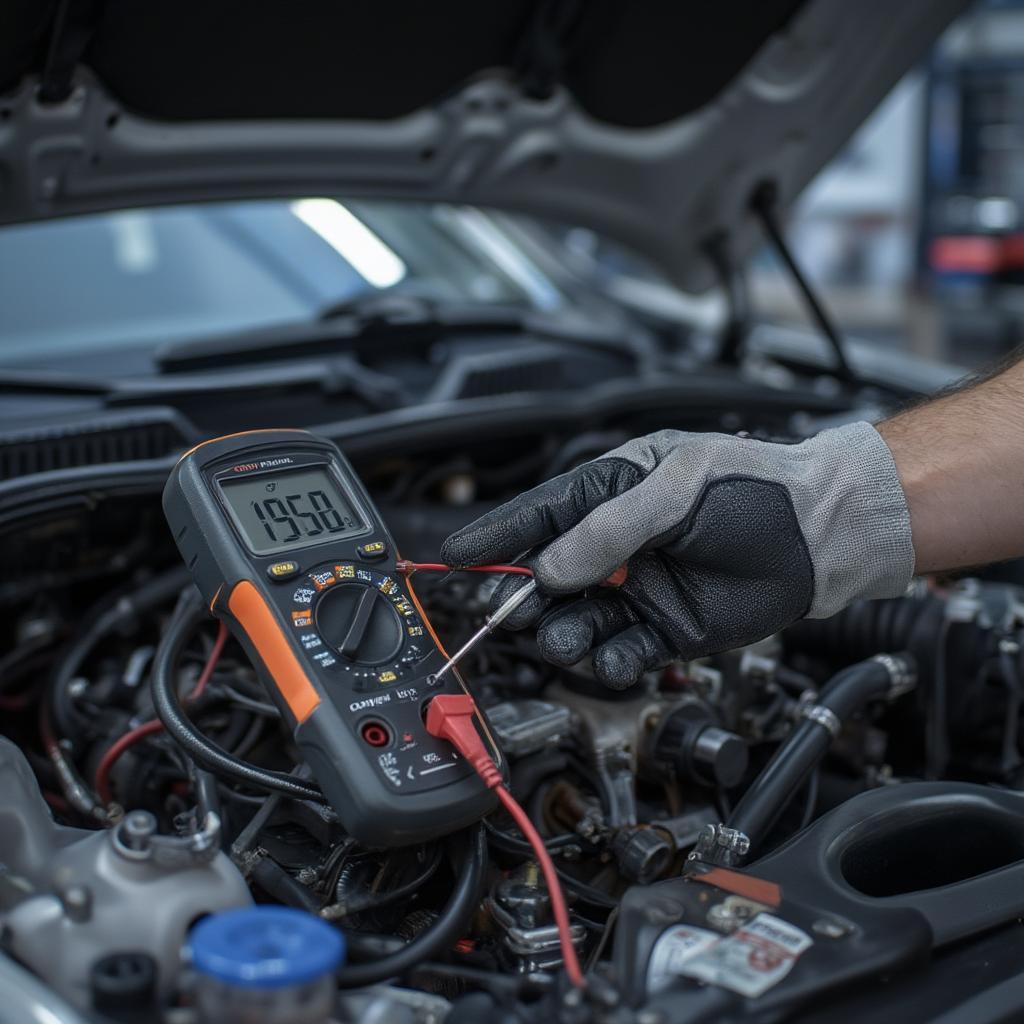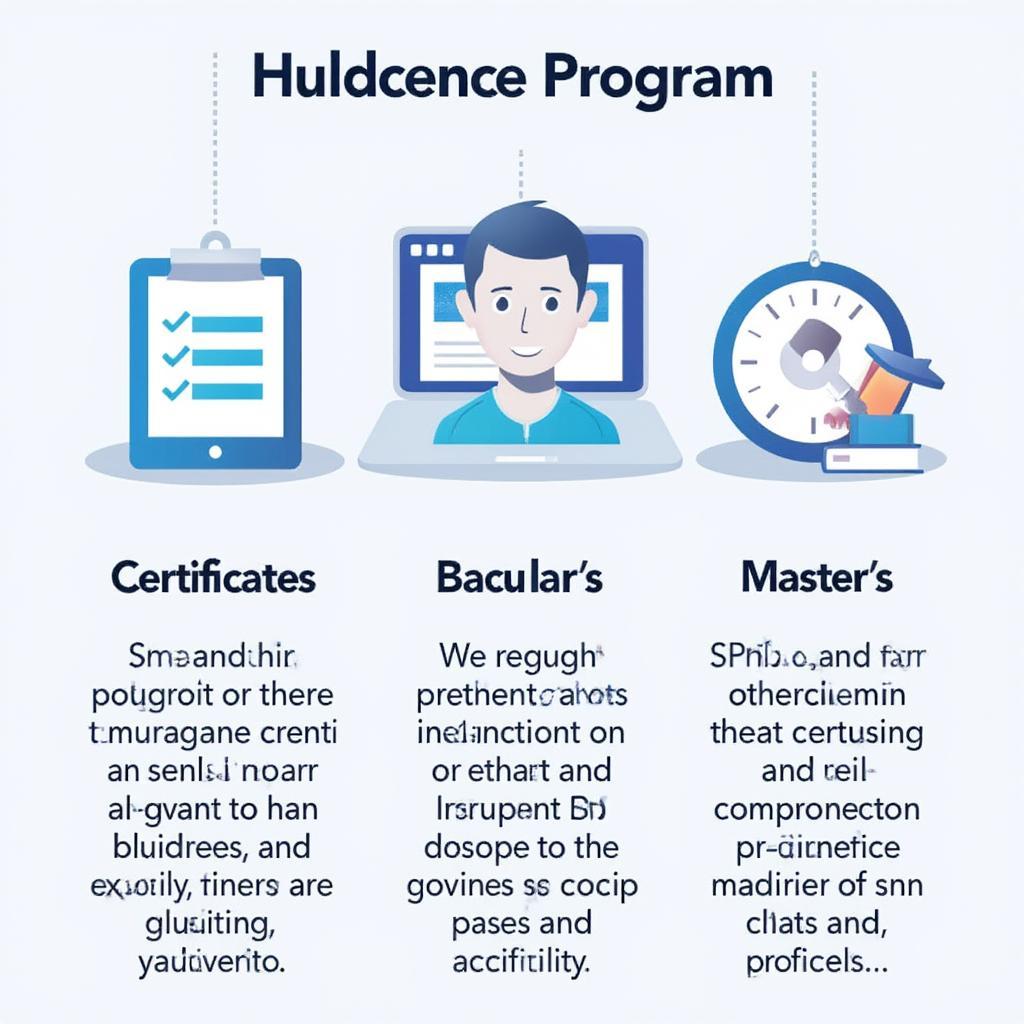Cert 4 Light Vehicle Mechanic: Your Path to Automotive Excellence

Embarking on a career as a light vehicle mechanic is an exciting prospect, and achieving your Cert 4 qualification is a major step. This article will explore what a Cert 4 in Light Vehicle Mechanical Technology entails, what you’ll learn, and how it can propel you toward a successful career in the automotive industry. For those looking to combine their passion for vehicles with hands-on technical expertise, this qualification can be the perfect fit.
A Certificate IV in Light Vehicle Mechanical Technology, often shortened to Cert 4 Light Vehicle Mechanic, is more than just a piece of paper; it’s your passport to becoming a proficient automotive technician. This qualification goes beyond the basics, diving deep into advanced diagnostic and repair procedures. It equips you with the skills necessary to handle the complexities of modern vehicles. Think of it as your apprenticeship’s advanced stage, making you a highly sought-after professional in the automotive sector. Understanding the difference between this certification and an entry-level program is key to aligning your career goals effectively, and recognizing the pathway that it can create towards becoming a master technician.
What Does a Cert 4 Light Vehicle Mechanic Involve?
The Cert 4 Light Vehicle Mechanic qualification provides a comprehensive training experience encompassing a wide range of mechanical and electrical systems found in modern vehicles. It’s not just about fixing cars; it’s about understanding how they work. The curriculum typically includes:
- Advanced diagnostics: Learning to use advanced tools and techniques to diagnose complex faults in engine, transmission, and electrical systems. This includes becoming proficient at interpreting scan tool data and understanding fault codes, a crucial skill in modern automotive repair.
- Engine management systems: Gaining in-depth knowledge of fuel injection, ignition, and emission control systems. You’ll be studying how these systems interact and how to repair them.
- Brake and suspension systems: Mastering the intricacies of anti-lock braking systems (ABS), electronic stability control (ESC), and advanced suspension systems. Understanding how these systems work is critical for ensuring vehicle safety and performance, and forms a key component of the training for any light vehicle mechanic looking to progress in their career.
- Transmission and drivetrain systems: Learning about the mechanics and electronics of automatic and manual transmissions, along with differential and driveline components. This section covers both the mechanical and the electrical aspects of these systems.
- Air conditioning and climate control systems: Developing skills in diagnosing and repairing vehicle air conditioning systems. These are becoming increasingly complex due to new environmental standards, therefore making it a valuable skill in a vehicle mechanic’s arsenal.
- Practical hands-on experience: Most of your training is based in workshops, where you’ll work with real vehicles and tackle actual problems, under the supervision of experienced trainers. This component is important because it bridges the gap between theoretical knowledge and practical application, allowing you to develop problem-solving skills.
Why is a Cert 4 Light Vehicle Mechanic Important?
A Cert 4 qualification is essential for several reasons:
- Career Advancement: This is a significant step up from entry-level qualifications and allows you to take on more challenging roles. With this qualification, you’re not just changing oil; you’re diagnosing complex problems and leading repair projects. This could be a stepping stone to roles such as workshop supervisor or master technician.
- Higher Earning Potential: Technicians with a Cert 4 qualification generally earn more than those without it, reflecting their increased expertise and skill level, and for some it may mean pursuing other career related paths such as a auto mechanic majors.
- Industry Recognition: It is a recognized qualification within the automotive industry, ensuring employers value your skills and expertise. It’s a clear sign that you’re serious about your career and committed to developing your skills.
- Advanced Skill Development: You’ll develop the advanced technical skills required to work on modern vehicles that are increasingly complex, which will make you a highly sought after vehicle mechanic.
- Professional Development: This is a qualification that forms the foundation for further specialisation and advanced training in automotive technology. Some people even go further down the educational route, however it is not common within the automotive industry.

“The Cert 4 in Light Vehicle Mechanical Technology is a game-changer for aspiring technicians,” says Johnathan Blake, a seasoned automotive technician and mentor with over 20 years of experience. “It equips you with the skills and knowledge to tackle even the most complex automotive issues, setting you up for a rewarding career.”
What Will You Learn During Your Cert 4?
The curriculum for a Cert 4 Light Vehicle Mechanic is designed to be both comprehensive and practical, providing you with a robust understanding of modern automotive technology. Here’s a detailed look at some of the key areas:
Advanced Diagnostic Techniques
- Using Scan Tools and Diagnostic Equipment: You will learn to utilize advanced diagnostic tools, interpret the data, and use this information to accurately diagnose faults in a vehicle’s system. The focus will be on accuracy and efficiency, in finding the root cause of a problem.
- Interpreting Wiring Diagrams: Modern vehicles are complex networks of electrical circuits, so you’ll become adept at reading and interpreting wiring diagrams, in order to effectively find and fix the faults. This section aims to make you a problem solver, rather than a parts changer.
- Fault Finding and Troubleshooting: You’ll learn systematic approaches to troubleshooting, starting with analyzing the symptom to pinpointing the root cause of an issue, giving you the tools needed to solve any problem thrown your way.
Engine and Drivetrain Systems
- Engine Management and Fuel Systems: This section looks at how to work on and maintain modern engine systems. Fuel injection, ignition, and emission control will also be covered, giving you a working knowledge of these essential parts of the car.
- Transmission and Driveline Repairs: You will learn how to repair and maintain transmissions, both automatic and manual, along with the different types of drivetrain systems in use today.
- Hybrid and Electric Vehicle Systems: Many programs also include a section on the basic of hybrid and electric vehicle systems, and the specific systems and technologies used in them, as these vehicles become more common on our roads.
Chassis and Safety Systems
- Brake System Diagnostics and Repair: Here you will learn the intricacies of anti-lock braking systems, electronic stability control and other advanced braking systems, as well as how they work and how to repair them.
- Suspension and Steering Systems: This covers the different types of suspension and steering systems, including how they work and the techniques needed to maintain and repair them.
- Tyre Management and Wheel Alignment: You will learn how to assess tire condition, perform wheel alignments, and ensure vehicles are safe and performing at their best.
Air Conditioning and Climate Control
- HVAC System Operation: This section covers how vehicle air conditioning systems work, including all of the different components of the system and how they interact with each other.
- Diagnosing and Repairing A/C Faults: You’ll become proficient in diagnosing common issues in air conditioning systems, from simple recharges to complex electrical faults.
- Refrigerant Handling: You will learn the correct way to handle refrigerants, including safety procedures and environmental considerations, important for both yourself and the environment.
How Does This Qualify You for the Automotive Industry?
A Cert 4 qualification not only enhances your technical skills but also makes you highly employable in various roles. Here are a few potential career paths:
- Senior Automotive Technician: Performing complex diagnostic and repair tasks. With a Cert 4, you’ll not only be able to diagnose problems but also implement the appropriate solutions using advanced techniques.
- Workshop Supervisor: Overseeing the day-to-day operations of an automotive workshop, coordinating jobs, and guiding junior technicians, which many people see as a great career path to choose within the automotive industry.
- Service Advisor: Using your mechanical knowledge to advise customers on repairs and maintenance needed for their vehicles, and helping them through the process of having their vehicle repaired, which is something that helps to improve the overall customer experience,
- Specialized Technician: Focusing on specific areas like engine reconditioning, electrical systems, or air conditioning repair, which is something that many experienced technicians tend to do as they progress through their careers.
- Mobile Mechanic: Servicing and repairing vehicles at clients’ homes or workplaces, this allows for a very flexible and personal approach to automotive maintenance, and it is becoming a very popular choice in the modern age.

“The depth of knowledge I gained from my Cert 4 has been invaluable,” says Sarah Chen, a workshop supervisor at a busy automotive service center. “It not only allowed me to advance my career but also to lead and mentor other technicians effectively.” This is a common story of many automotive professionals who invest time into educating themselves and advancing their career in the automotive industry.
Preparing for the Cert 4 in Light Vehicle Mechanical Technology
Before you jump into a Cert 4 program, there are several things you should consider:
- Prerequisites: Check if any prior qualifications or experience is required. Most programs require a Certificate III in Light Vehicle Mechanical Technology or equivalent, and may also require the student to be registered with a Training Authority.
- Training Providers: Look for reputable institutions that offer quality training and have experienced trainers, which can be crucial for your overall experience.
- Course Duration: Be prepared for the time commitment; most programs take 1 to 2 years to complete, and are usually combined with an apprenticeship to improve your overall skill set.
- Financial Considerations: Research the course fees and any financial assistance or government funding that may be available for the course.
Taking the first steps towards becoming a qualified mechanic can be intimidating, but being prepared and knowing what to expect can go a long way towards helping. This qualification not only provides valuable skills but also enhances your earning potential in a thriving automotive industry, such as earning the average salary for ase certified mechanic.
Conclusion
A Cert 4 Light Vehicle Mechanic is a significant milestone in your journey to a successful automotive career. It equips you with advanced skills, in-depth knowledge, and the confidence to tackle complex vehicle issues. Whether you aspire to be a senior technician, workshop supervisor, or a specialist in a particular area, this qualification is your foundation for a successful career in the automotive industry. Don’t just dream about fixing cars; take the first step towards making it your reality with a Cert 4 in Light Vehicle Mechanical Technology. With training from reputable providers, hands-on practical experience and the development of advanced diagnostic skills, you will be able to set yourself apart from other vehicle mechanics in a competitive job market. If you’re wanting to learn more about the automotive industry and the many career paths that are available, check out automotive mechanics and electronics for more information and the possible career paths that you could take.
FAQ
- What is the difference between a Cert 3 and a Cert 4 in Light Vehicle Mechanical Technology? A Cert 3 provides basic skills and knowledge for entry-level roles, while a Cert 4 focuses on advanced diagnostics, complex repair procedures, and supervisory skills. The Cert 4 goes more in-depth and is an essential stepping stone to becoming a senior technician.
- How long does it take to complete a Cert 4 in Light Vehicle Mechanical Technology? The duration is typically around 1-2 years, depending on the training provider and mode of study (full-time, part-time). This usually involves a mix of classroom based learning and practical workshop experience as well.
- What kind of jobs can I get with a Cert 4 Light Vehicle Mechanic? You can work as a Senior Automotive Technician, Workshop Supervisor, Service Advisor, Specialized Technician, or Mobile Mechanic, giving you a wide range of choices to follow in your career path within the automotive industry.
- Do I need prior qualifications to start a Cert 4 program? Yes, most providers require a Certificate III in Light Vehicle Mechanical Technology or equivalent as a prerequisite to enrolling in their Cert 4 course.
- What skills will I gain from a Cert 4 Light Vehicle Mechanic course? You’ll gain skills in advanced diagnostics, engine management, brake and suspension systems, transmission repair, electrical systems, and air conditioning repair. These are very important skills in modern vehicles and also for your future career prospects.
- Will I need to buy a lot of tools for the course? Most training providers will have tools for you to use while at the training facility, but you may need to gradually build up your own toolbox, especially if you plan on starting an apprenticeship or to take on employment as a mechanic, tools are one of the most important requirements.
- Is the demand high for light vehicle mechanics with a Cert 4? Yes, the demand is quite high for skilled and qualified mechanics, making a Cert 4 a very good investment into your future career, and it’s a great industry to get into due to the demand for mechanics.
- How much can I expect to earn with a Cert 4 in Light Vehicle Mechanical Technology? Your earning potential will be higher than entry-level mechanics, and the specific amount will depend on your experience, employer, and location. It can range anywhere from the average to well above average, depending on how motivated you are to advance in your career.
- Where can I find a quality Cert 4 Light Vehicle Mechanic training program? It’s best to look for registered training organizations (RTO’s) that have qualified trainers and a solid reputation in the industry, as this will affect how you are perceived in the job market.




